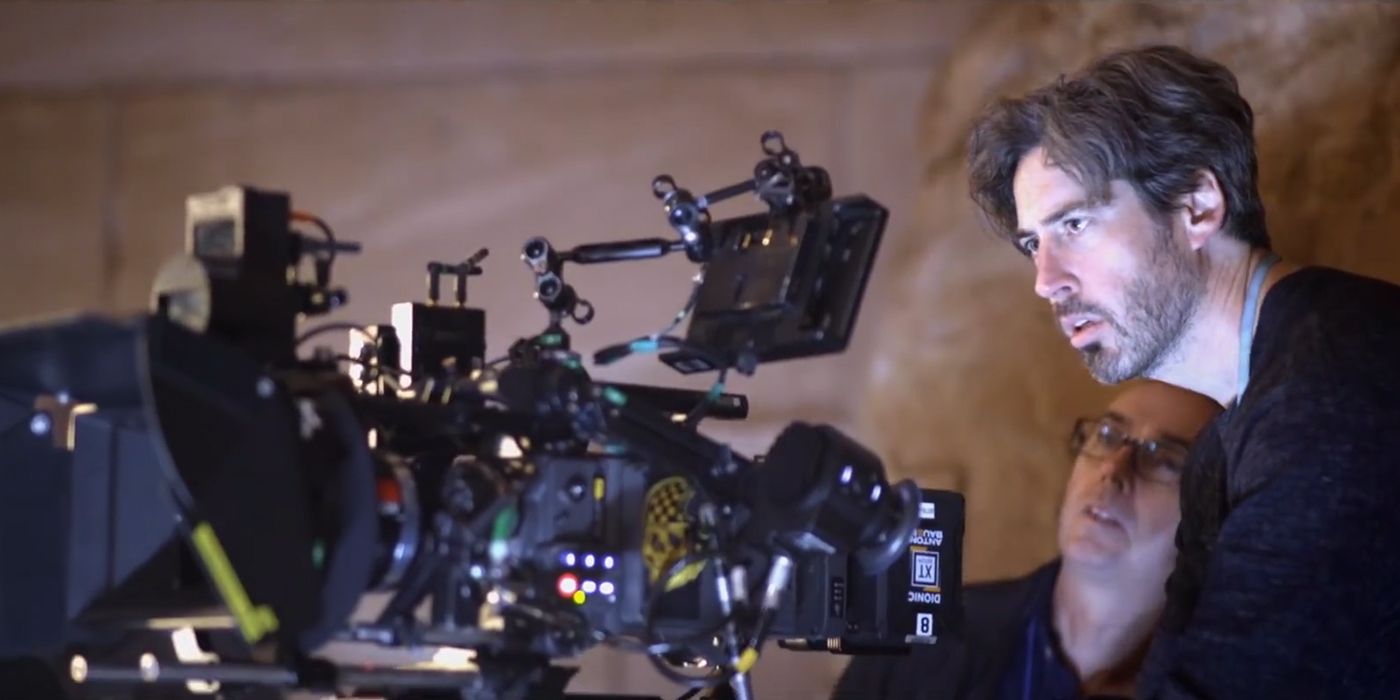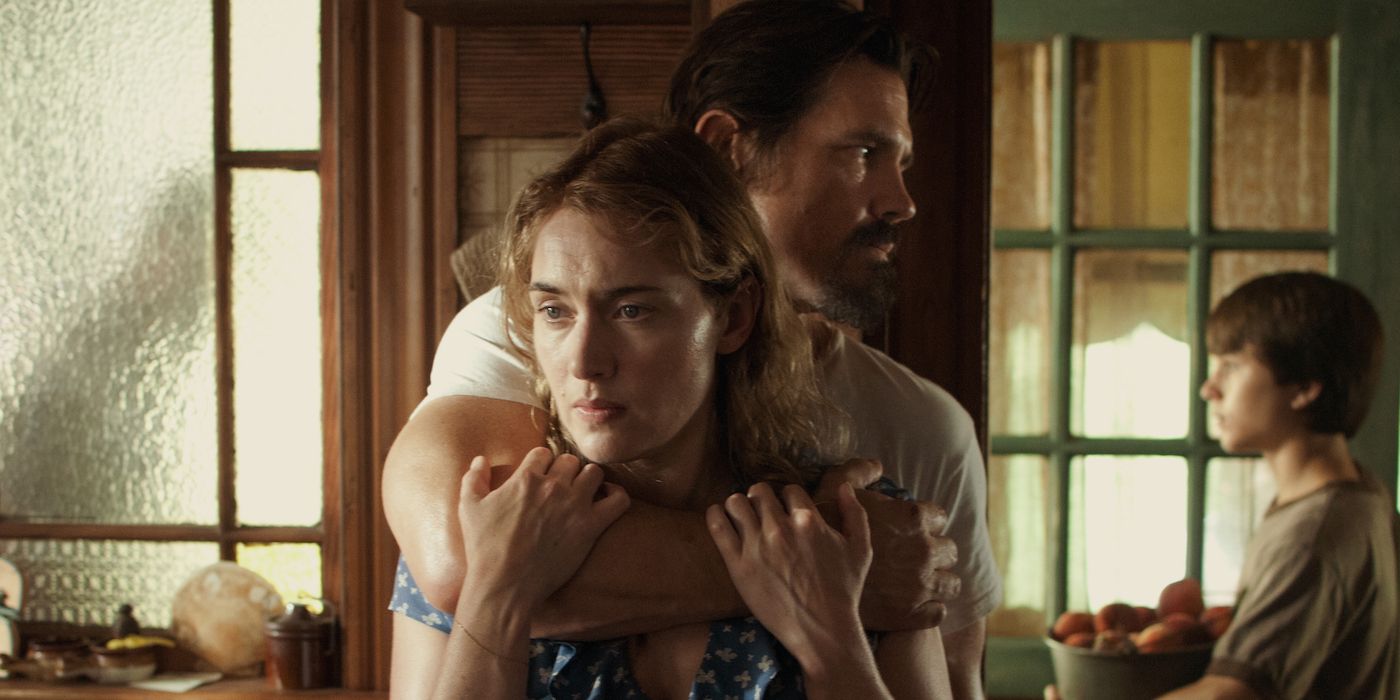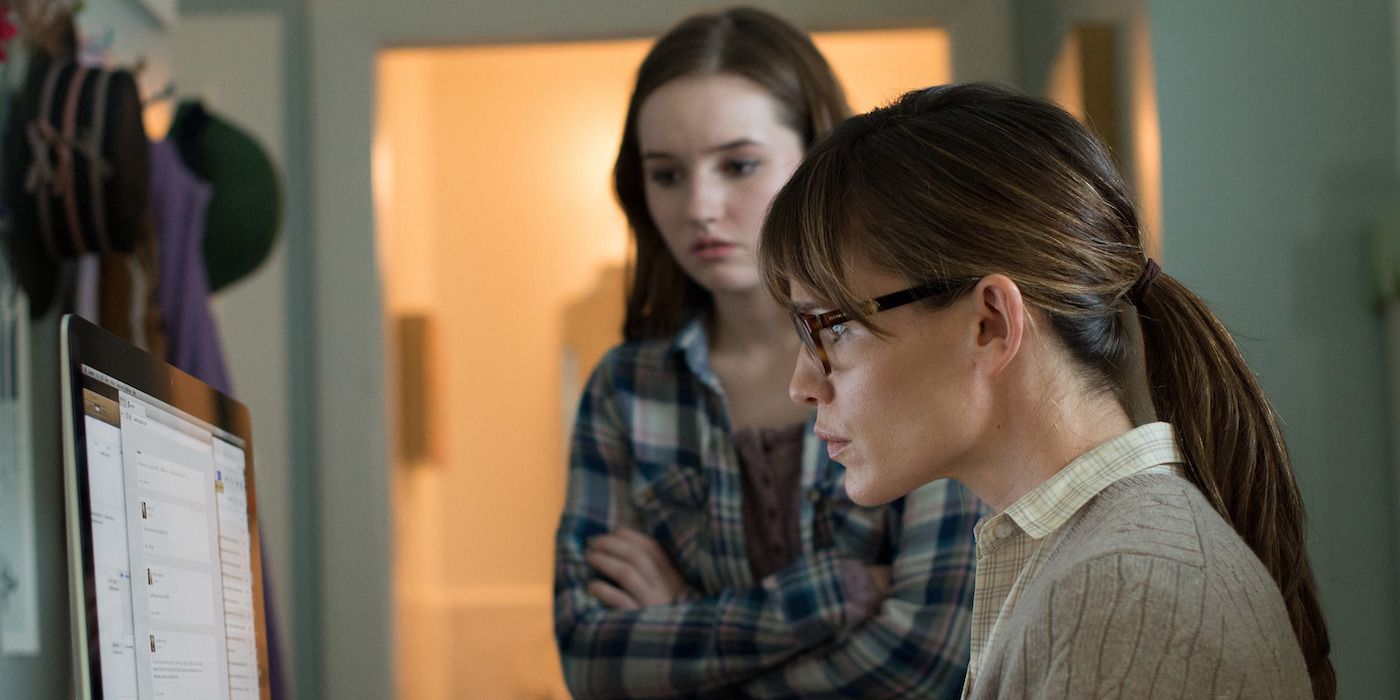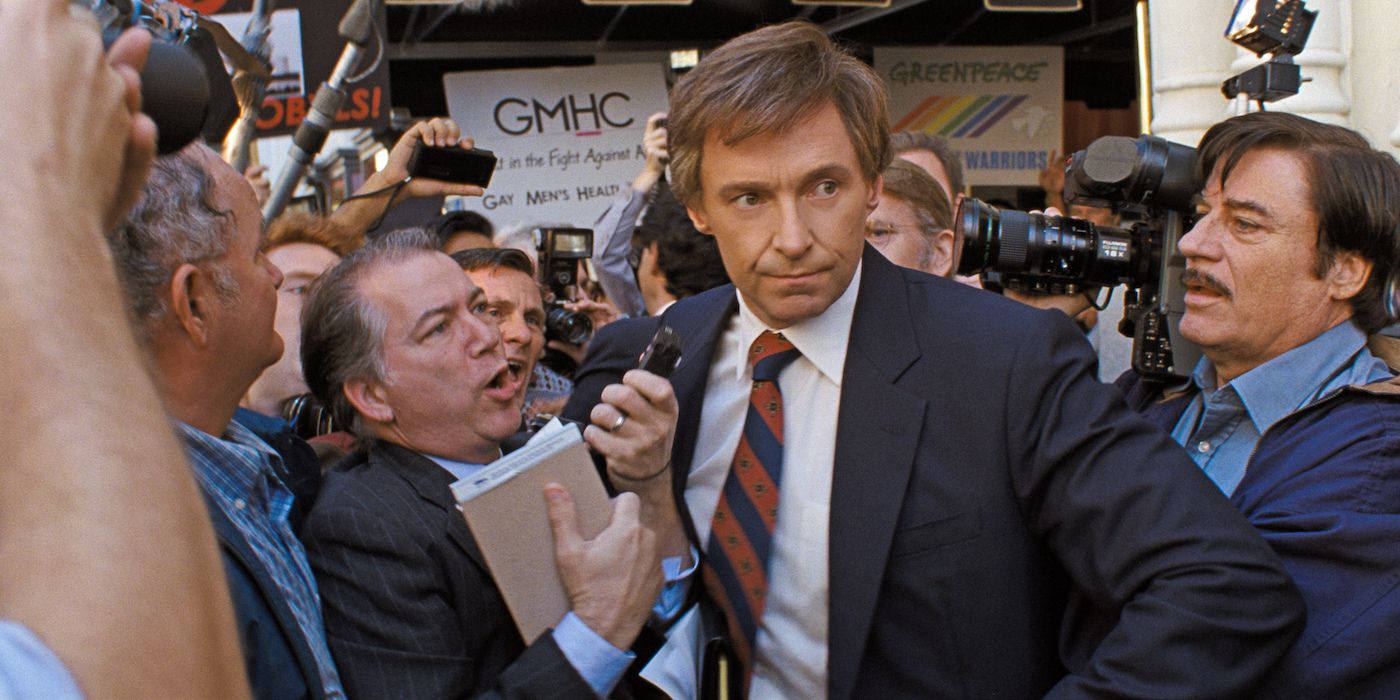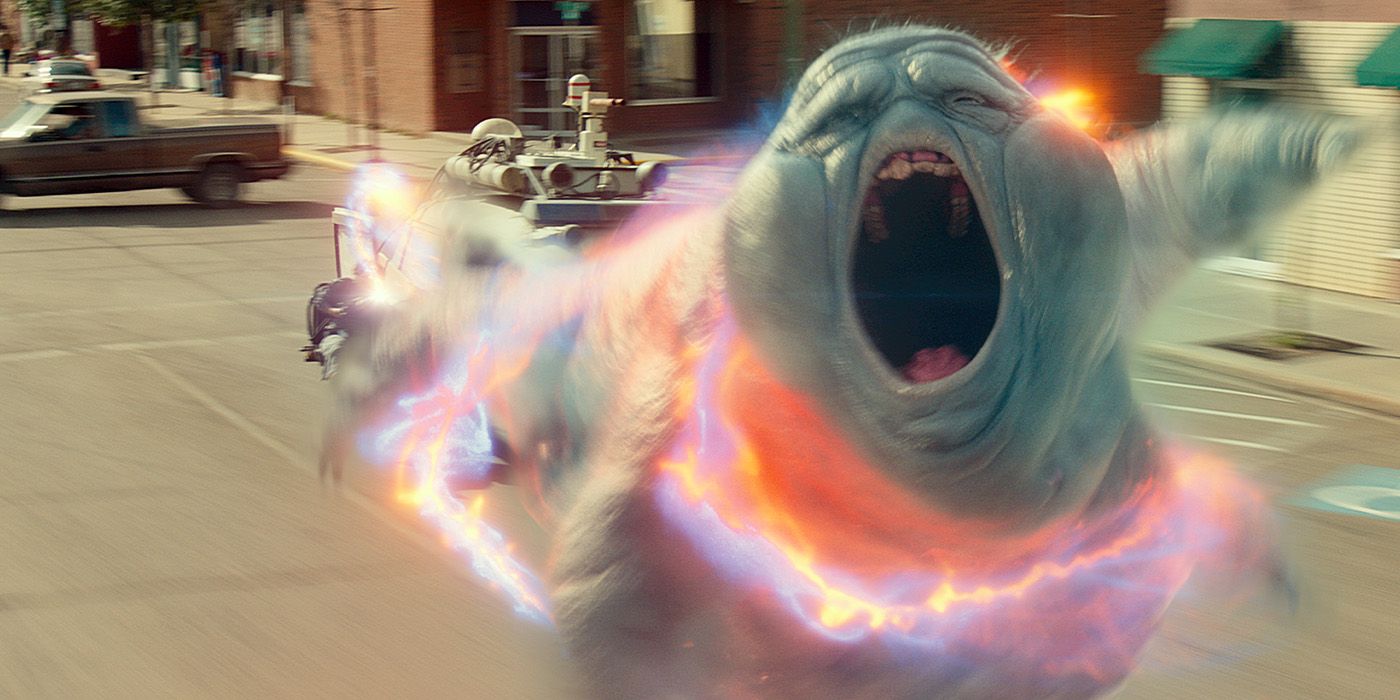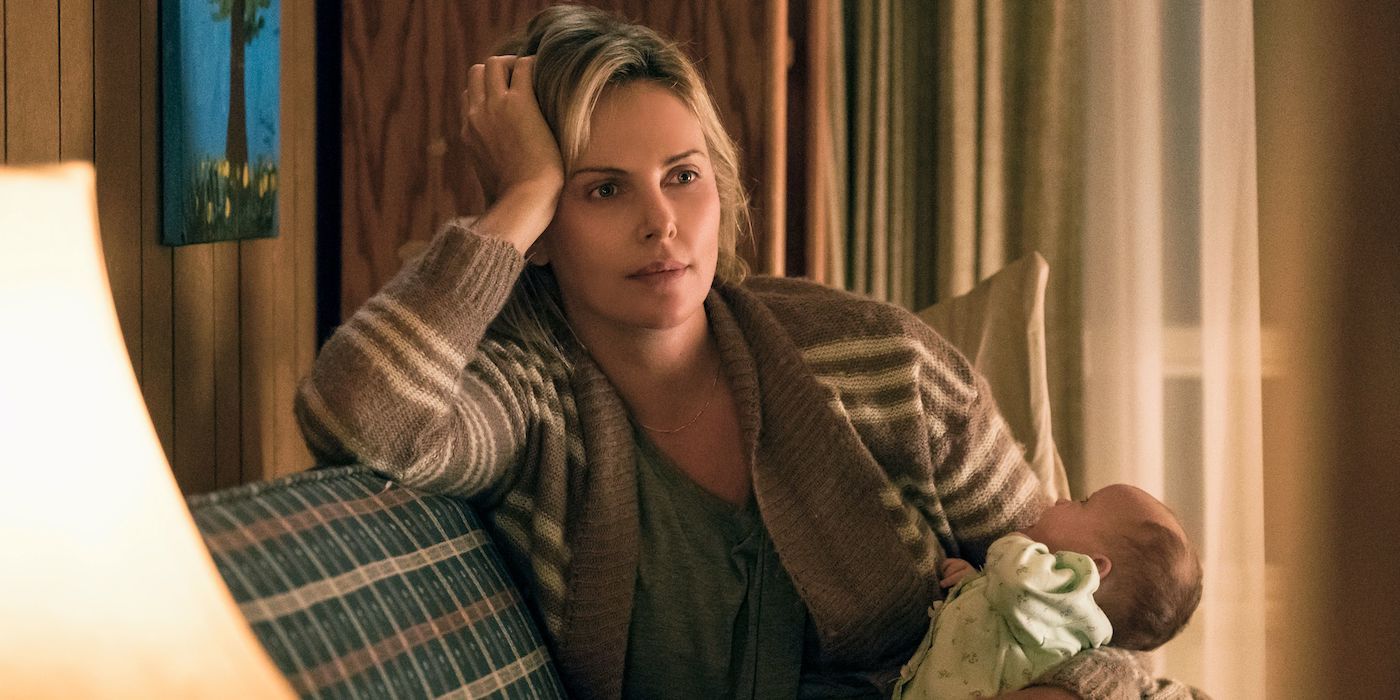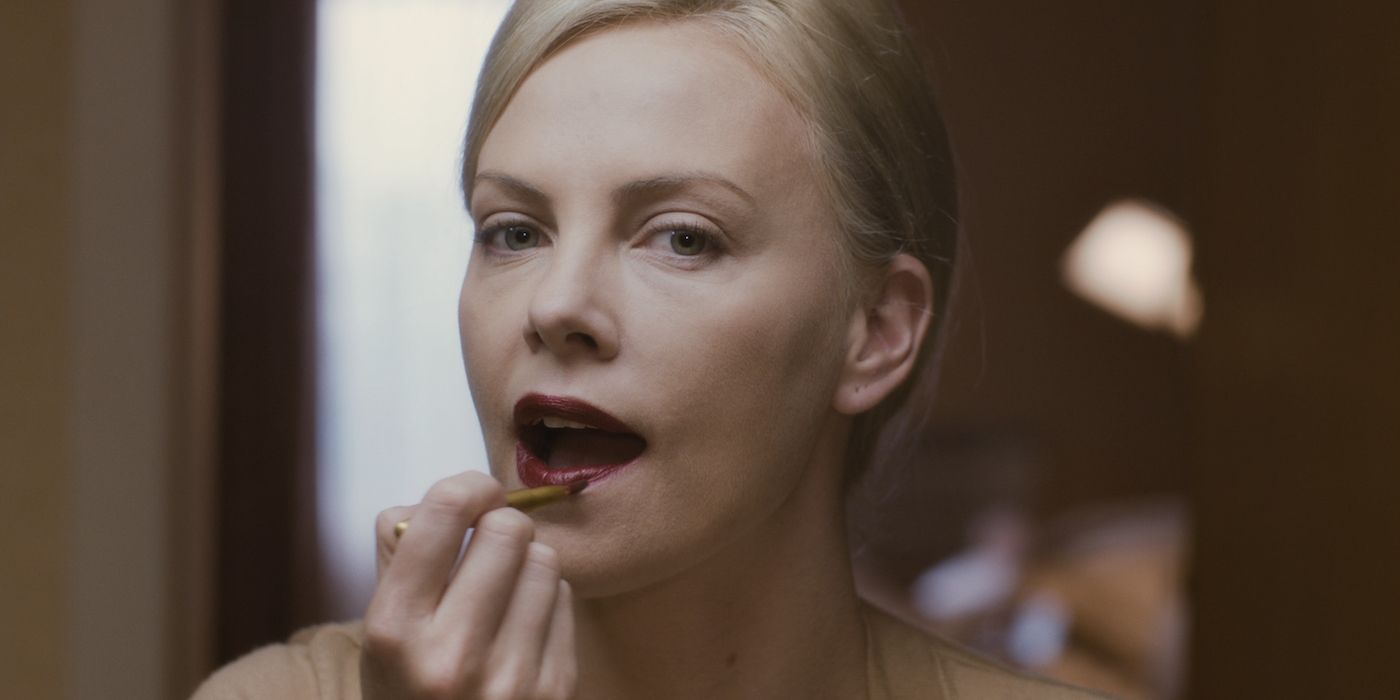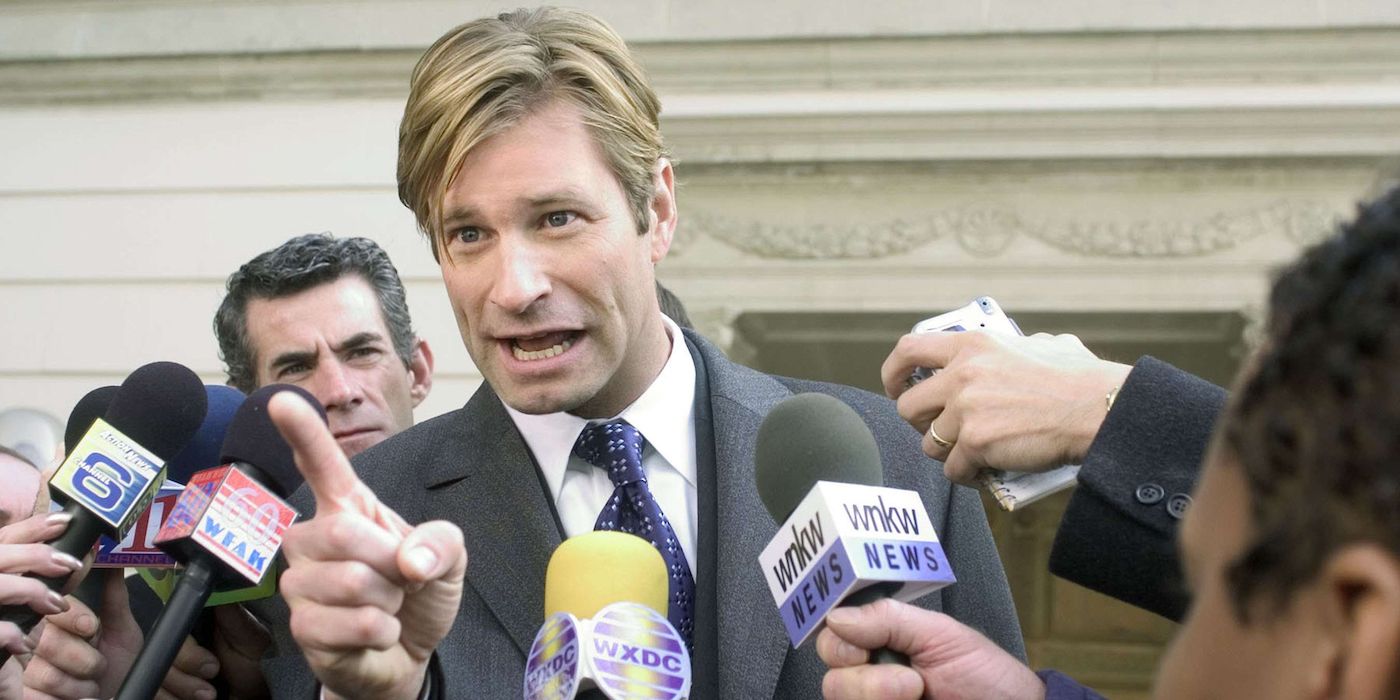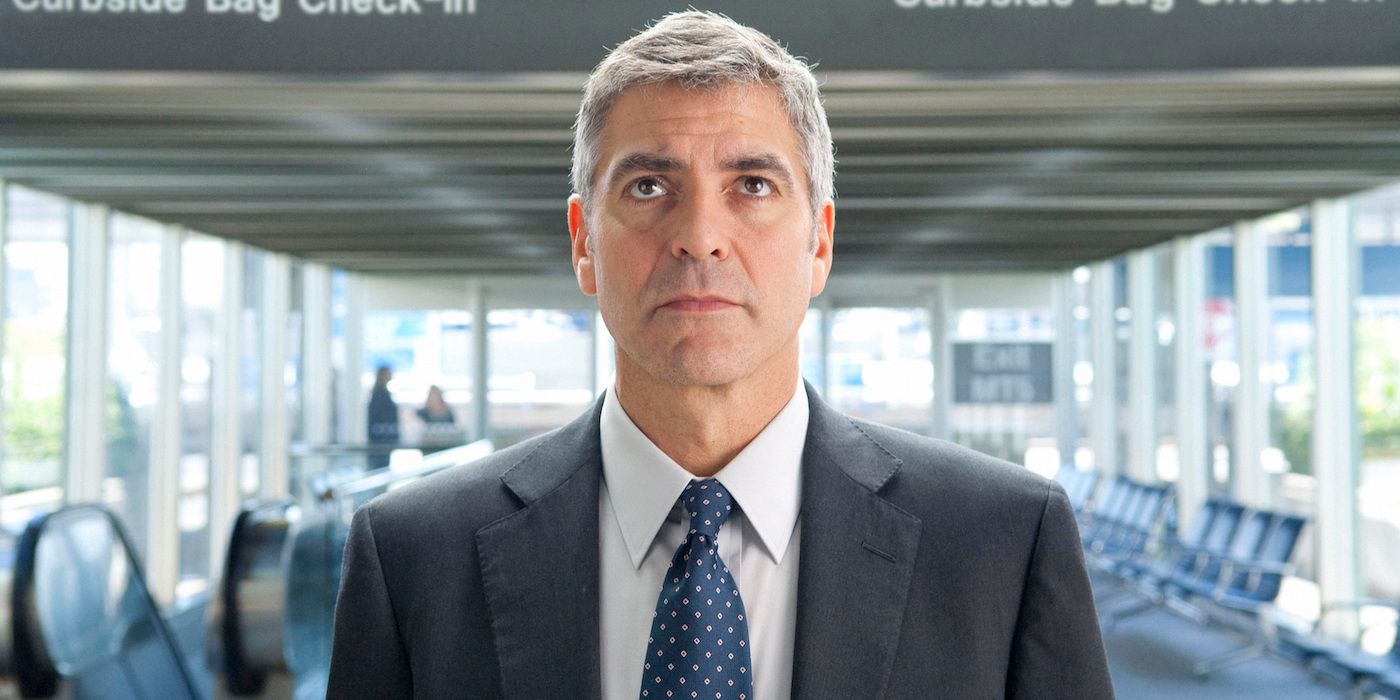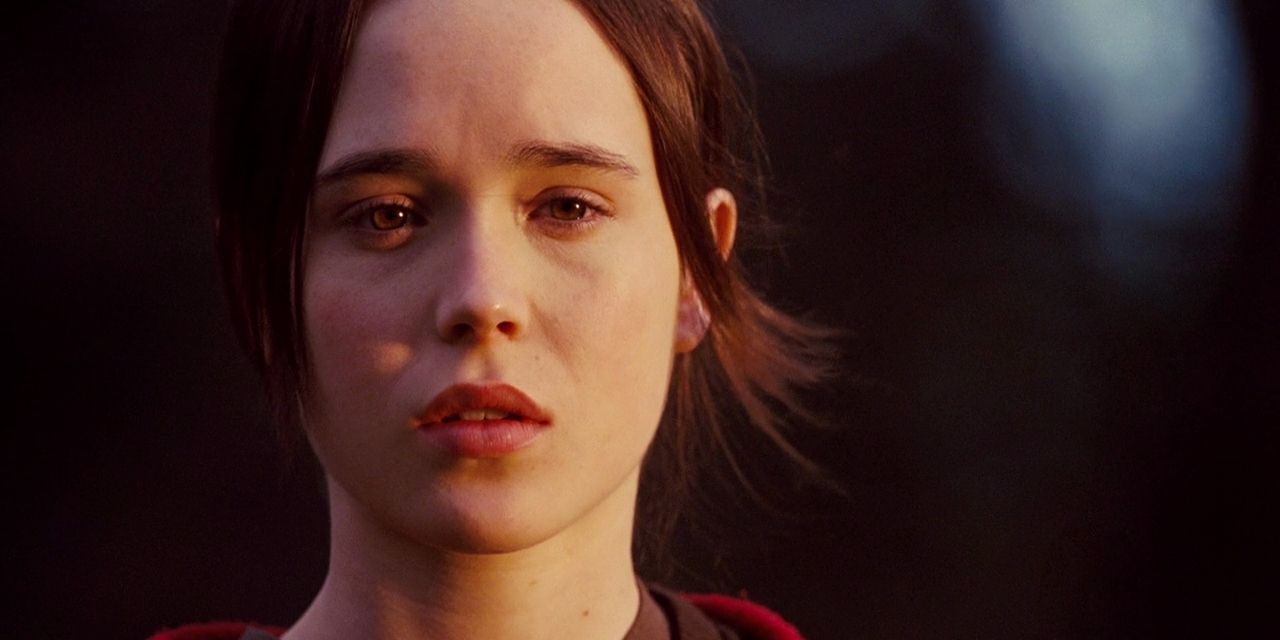The work of writer-director Jason Reitman is one of filmmaking's most eclectic and fascinating. He has gone from making the most charming of comedy-dramas that tackle growing up and family, to now basically whatever he wants. Be it a darker satire or a big blockbuster revisiting an older property, Reitman is known for taking on a variety of projects that range in genre as well as tone. He hasn’t always been successful in flawlessly executing every one of these stories, though he has proven to have many more hits than misses when he swings for the fences.
His most recent work is following in the footsteps of his father, Ivan Reitman. Ivan originally directed the beloved Ghostbusters film, and Jason is now picking up the franchise with Ghostbusters: Afterlife. It provides as good an opportunity as ever to look back through all the younger Reitman has directed to trace the trajectory of his unique career.
9. Labor Day
A messy and generally misguided story of Stockholm syndrome that resembles the shallowness of a Nicholas Sparks film you’ve already seen a thousand times, Labor Day strains credulity at all turns by flattening its characters down until they almost completely disappear. It does this in order to serve a narrative that isn’t nearly as engaging as it thinks it is. Kate Winslet’s Adele lives alone with her son, Gattlin Griffith’s Henry. That is until Josh Brolin’s Frank, a man on the run from the police, takes them both hostage and says he needs to stay in their house for a while until trouble blows over. That is his initial plan, but soon, Frank begins cooking and cleaning, winning over Adele until she wishes for him to stay.
The film has a strong cast though it never gives them enough to work with as everything proceeds with woefully poor pacing. There are brief glimpses of intrigue, especially when the depravity of what Frank did is revealed. Yet it all passes with the blink of an eye, making you wonder if it even happened. Reitman adapted it from a beloved novel of the same name by Joyce Maynard. However, something must have been lost in translation, as it never quite connects.
8. Men, Women & Children
An ensemble film about the internet and how it shapes our relationship to each other, Men, Women & Children is a complicated if ultimately unsuccessful look at the lives of multiple people living in Texas. There is probably a moderately good story buried deep within the multiple stories playing out, though you never get to fully see it. They are all stripped to the bare bones of storytelling, ensuring none of them ever feel complete. It is a film that has a lot going on, from infidelity to body image issues to porn addiction, yet never feels like it gets to actually explore these subjects with any depth. The internet and how it has the capacity to warp our perceptions of reality is an interesting focal point, though you wouldn’t know it from watching this film. Even with a cast giving routinely solid performances, the film is painfully creaky.
The way all the various intersecting storylines wrap up is only a further detriment to the story itself. The blunt manner in which everything concludes is infuriating, though not in the way that the film intended. It has all the subtlety of a sledgehammer, beating you over the head again and again without any sense of tact. When the most memorable scene in your film comes as a surprise appearance by Timothée Chalamet getting hit in the face, you might have a bit of a problem.
7. The Front Runner
Based on an intriguing true story with a strong central performance that still somehow manages to land with a hollow thud, The Front Runner is the film on this list that represents the biggest missed opportunity. It stars Hugh Jackman as Gary Hart, a former U.S. Senator who was beginning his run for president in 1987 when his campaign became caught up in allegations over an extramarital affair. As Hart tries to ignore the allegations and wait for it all to blow over, it becomes clear that this won’t be going away; it ends up completely consuming his campaign before it even began. The details are fuzzy and the film doesn’t seek to provide much clarity, instead opting to interrogate broader themes about whether the story itself was worth the focus it was given. It also follows reporters who pursue the rumors, including a Miami Herald journalist played by a surprisingly mustached Bill Burr who stakes out Hart’s house.
The film never offers any easy answers to the questions it poses. The problem is, it doesn’t offer much of any answers or themes at all. It all just plods along and never finds an engaging narrative thread to focus on. Jackman himself, the ostensible central character, almost fades into the background, and the film's repetitive nature shifts into being surprisingly mundane. For a story about an explosive situation like this, it is strange to see the film be so timid and uncertain.
6. Ghostbusters: Afterlife
Reitman’s most recent work is far from perfect as it struggles to distinguish itself beyond its heavy reliance on nostalgia and recreations of moments from the prior film. However, it does have some redeeming qualities sprinkled throughout. Notable among them is the always compelling Carrie Coon who plays a single mother named Callie that moves to a small town after financial troubles. This new setting of the film also happens to be the center of ghost activity in the world, because of course it does. Coon carries the film’s narrative heart as her character is dealing with the emotional fallout of revisiting painful memories of her father who abandoned her while also trying to raise kids of her own. Callie’s father is none other than Dr. Egon Spengler himself (the late Harold Ramis), who becomes an increasingly central part of the story the longer the film goes on.
The derivative nature of Ghostbusters: Afterlife is what ultimately puts a damper on the whole affair. The best parts are the ones that try to distinguish themselves and take things in a creative new direction. However, these attempts are only half-hearted when compared to the deluge of callbacks. This reaches a peak in a seemingly abandoned Walmart where Callie’s budding love interest, played with a wink and a smile by Paul Rudd, gets a scene that appears just to bring back an old element of the original film. It all nearly collapses under the weight of how many references it jams in. It casts a long shadow over itself that it never escapes, reducing it to being a valiant effort that lacks the originality to make it a successful new entry.
5. Tully
Tully is a film that has faced a bit of pushback because of a certain direction the plot goes in toward the end. I am here to tell you that the film is not only quite good leading up to the shift in narrative, but from that point onward as well. It stars a commanding Charlize Theron as Marlo, a mother of three children who is struggling to keep up with all the demands of parenthood. Her husband, Ron Livingston’s Drew, is not unkind but still remains largely unhelpful. Marlo then hires a night nanny, Mackenzie Davis’ Tully, with whom she begins to form a strong connection. Not only does Tully take a weight off of Marlo’s shoulders, but she serves as one of the only adults Marlo can talk to.
The film is a stark and honest look at how challenging motherhood can be with Theron bringing the character fully to life. It is a performance without pretension that is one of her best. Marlo’s vulnerabilities are presented with compassion and care with Theron making her a fully realized person just trying to get by. The regret Marlo has for the direction her life has gone is presented truthfully, and she is at a near-constant breaking point. When she does reach that point, the film doesn’t pull any punches in showing just how encompassing her mental breakdown becomes. It is a glimpse of an everyday person who is doing all that she can to hold her life together, and in the moments of her failure, you are completely invested in seeing her find some path to healing.
4. Young Adult
One of the more depressing films on this list, Young Adult is a painfully prolonged look at a life in crisis. This film again stars Theron, this time as an alcoholic and depressed author named Mavis who is going back home to small-town Minnesota to try to win back her old high school boyfriend. There is just one small problem: said boyfriend, Patrick Wilson's Buddy, is married and has a child. Not to be deterred, Mavis decides to go all out in trying to get him to leave his family for her. There is no way around it, this film is deeply uncomfortable. You feel terrible for the whole situation and yet you can’t stop watching it. Theron gives an outstanding performance as she captures the desperation and loneliness of the character that drive her to do increasingly immoral things. The crisis Mavis is in doesn’t excuse her actions, it just gives it the shape and form to be so thoroughly convincing that it hurts. You feel every single ounce of her pain as it becomes increasingly clear that she is struggling to get out of the pit her life has become.
There is only the smallest of catharsis to be found as the film looks at the spiraling of her life with a committed honesty that is mesmerizing. It also is darkly funny and relatable to see the dynamics of returning home only to discover that you don’t belong there come rushing in (but there is still a crushing sense of sadness woven into the humor). The final moments of the film do offer a subtle conclusion with a hope that she could be better, with Theron’s performance ensuring it has maximum impact. It is easily one of the better character studies you’ll ever get the chance to see.
3. Thank You for Smoking
Okay, so Thank You for Smoking is a film that is most certainly not going to be for everyone. It is hard to think of a more cynical work than Reitman’s unabashedly dark satire about the tobacco industry and the overwhelming greed that plagues American society. It centers on an incredibly smarmy Aaron Eckhart as Nick Naylor, the main lobbyist for Big Tobacco. Nick is committed to defending the indefensible, standing up for one of the largest killers in the country through a variety of underhanded tactics and misdirection. He is the “sultan of spin” who will do anything he can to protect the company that pays his checks. The company he keeps, the only friends he really has, are lobbyists for the alcohol industry and the firearms industry (David Koechner and Maria Bello). Making up the "M.O.D." squad, meaning "Merchants Of Death,” the depravity of these people knows no bounds.
It can be a lot to stomach, though that is intentionally so. Nick is downright despicable, though he is just the ugly embodiment of all the depths of sickness that have consumed our world. He peddles misinformation and lies at every turn, serving to manipulate people however he can. He even uses his own son (Cameron Bright) as a pawn to further his own ends, showing just how casually cruel he is. There is some occasionally mixed messaging about who is the target of this satire, including a tired trope about a reporter (Katie Holmes) sleeping with someone for a story, though it still lands some good punches where it counts. The story goes in intentionally absurd directions to heighten how horrible Nick is, ensuring the impact left by the film’s final moments won’t be soon forgotten. It is a film that lacks any hope for the world getting better when there are people like Nick who will spend every moment of their waking lives fighting to protect corporate interests that are killing people.
2. Up in the Air
Featuring a performance that is one of George Clooney’s best, Up in the Air is a story of upbeat if tragic existentialism in the sky. Clooney is Ryan Bingham, a man who is tasked with firing people for a living. It is bleak and depressing work, though Ryan tries to justify it to himself as he believes he provides people some dignity as he upends their lives. But then, he is told that he himself will soon be fired and the process itself is automated. The film then becomes about him trying to justify his existence to his employer and find out what he wants his life to be. He is isolated and alone from any real connection, finding purpose in flying all over the country with the routine that he has settled into. It is a sad life that he feels is slipping away, making it all the more interesting to see him try to cling to it simply because it is the only thing that he has.
Ryan begins to place all hope for having a future where he doesn’t end up completely alone on potentially forming a relationship with Vera Farmiga’s Alex. She is a fellow traveler with whom he has been having a fling whenever they are able to cross paths on their respective journeys. Alex has the same charm and quick wit as Ryan, making them initially seem like a good fit. However, it soon becomes clear that life is not so simple for the two and that the isolation they’ve both built around themselves won’t go away so easily. Clooney also has a great back and forth with Anna Kendrick’s Natalie, the one proposing automating the firing process. It is a film that overflows with melancholy masked with a gentle touch, proving itself to be a darkly funny, though ultimately tragic observation of how trapped the characters have found themselves in cycles of separation.
1. Juno
There was only one film that could have been at the top of this list and it was always going to be Juno. It has only grown richer and more resonant with time. It stars Elliot Page as Juno, a teenager whose life is upended by an unplanned pregnancy. Initially uncertain about whether to keep the child, Juno decides to seek out another family to adopt the child. The journey Juno goes on is nothing short of an emotionally bittersweet masterclass in building a fully realized character. The struggles and uncertainty Juno has about the future are covered up by a precociousness that is just overwhelmingly sweet. Juno’s relationship with the child’s father also adds an interesting layer of complexity. Played by a wonderfully awkward Michael Cera, Paulie is the biggest dork while also deeply caring for Juno.
Every performance is perpetually outstanding and completely compelling. Page is truly unmatched in the film, providing a deep sense of joy to each scene that is mixed with a looming sense of sadness. It also would be a crime not to mention the wonderful music that is absolutely central to what makes Juno such a delightful film. The opening title sequence will forever live rent-free inside my mind with its perfect use of Barry Louis Polisar’s "All I Want Is You" alongside a vibrantly rotoscoped stroll through Juno’s world. The movie is also incredibly funny, getting laughs in the most unexpected yet rewarding of places. There just is so much to love about Juno that is discovered on each subsequent viewing. It is a film that delicately nestles itself in the pitfalls of growing up unlike any other coming-of-age story.

